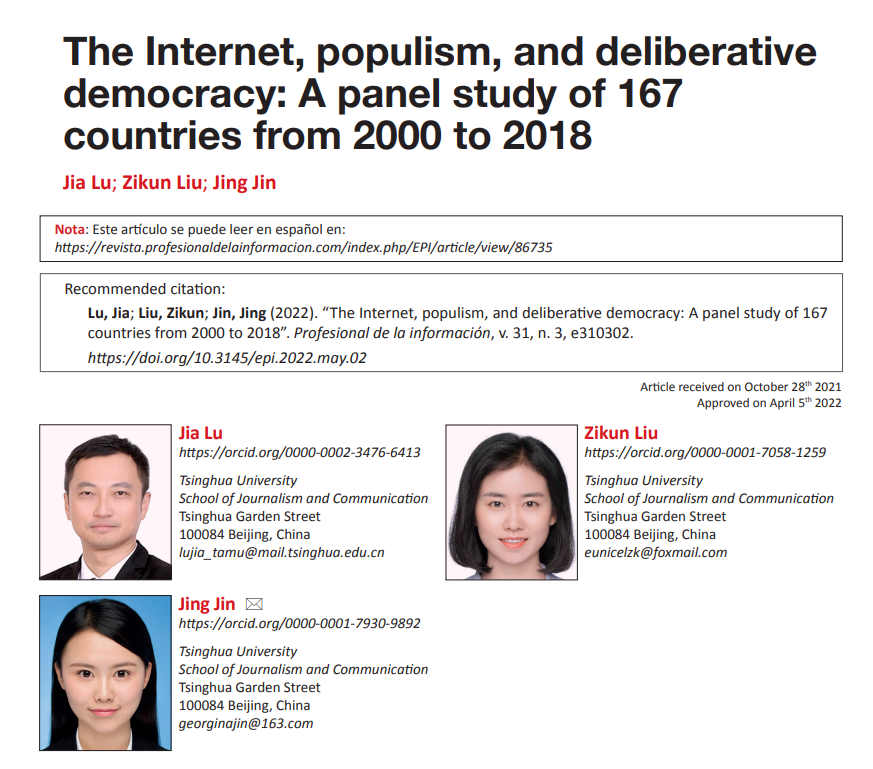
The Internet, populism, and deliberative democracy: A panel study of 167 countries from 2000 to 2018
On Sale
€15.00
€15.00
Abstract: The wide adoption of the Internet gave rise to populism, which is regarded as a critical threat to deliberative democracy. This paper was a cross-national panel study to explore the Internet’s populist impacts on deliberative democracy. It had two specific objectives. One was to examine whether or to what extent Internet penetration has populist impacts on deliberative dimensions, including reasoned justification, common good, respectful counterarguments, range of consultation, and engaged society. The other was to examine how Internet penetration moderates a country’s formal deliberative process, referring to the interaction among state institutions, the public sphere, and civil society. Using data from Varieties of Democracy (V-Dem) and the United Nations, we run panel analyses with a sample of 3,173 units in 167 countries from 2000 to 2018. The results showed that Internet penetration increased calls for the common good, disrespected counterarguments, narrowed the range of consultation, and expanded engagement in public deliberation. In addition, Internet penetration strengthened the effects of public sphere on reasoned justification and range of consultation, but weakened the effects of civil society on reasoned justification, common good, respectful counterarguments, and range of consultation.
